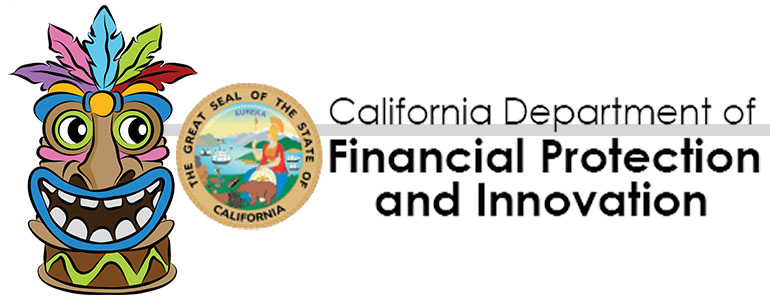
The California Department of Financial Protection and Innovation (DFPI) is working with state and federal agencies as well as local nonprofits to educate student loan borrowers about their rights and upcoming federal deadlines, including the Public Service Loan Forgiveness Waiver that expires on Oct. 31, 2022.
With federal student loan repayments expected to restart soon, the DFPI will be hosting a free webinar called “Get Help with Your Student Loans” on March 29 at 11 am. Student loan borrowers, which number close to 4 million in the state, can register for the webinar here: https://us06web.zoom.us/webinar/register/WN_Xk09DudxTKibwloxb4aoaw.
The event is one in a series hosted by the Department, with additional events coming up in April in May, to help student loan borrowers empower themselves as they navigate a complex loan repayment system. The DFPI regulates student loan servicers and recently hired a Student Loan Ombudsperson to help triage complex student borrower issues. In January, Gov. Gavin Newsom outlined his budget priorities and included a proposal that would allocate $10 million to the DFPI to fund a statewide communications campaign and grant program that would assist student loan borrowers.
“Student loan borrowers in the United States are in crisis in the wake of the COVID-19 pandemic,” said DFPI Commissioner Clothilde V. Hewlett. “In order to ensure that the next generation of leaders have a fighting chance to get their dreams back on track, we will do our part to inform and assist them as we work hand-in-hand with community partners committed to their financial empowerment.”
The webinar will highlight resources, workshops, assistance, and even free legal services available to student loan borrowers. Participants will include representatives from the Consumer Financial Protection Bureau, the Student Borrower Protection Center, East Bay Community Law Center, NextGen, and others.
In California, 3.9 million student borrowers owe $147 billion in student loan debt, according to the Student Borrower Protection Center. More than half a million student loan borrowers are believed to be delinquent or in default. According to The Institute for College Access and Success, average student debt for bachelor’s degree earners nationwide grew approximately 56 percent from 2004 to 2019, from $18,550 to $28,950 when adjusted for inflation.
A report by the California Student Loan and Debt Service Review Workgroup, which was established by the Budget Act of 2020, found that Black and Latino residents have higher default and delinquency rates than other groups. An equitable economic recovery is contingent on ensuring student borrowers who have fallen behind have access to the tools and resources needed to get back on track.
Approximately 51,000 California student borrowers with federal student loans who work in public service may be eligible for expanded access to the federal Limited PSLF Waiver program if they take specific action before Oct. 31, 2022.
For more information and to keep apprised of upcoming events, please visit the DFPI Student Borrower Resource webpage. The DFPI has upcoming events in April and May. This and future webinars will be recorded and shared on the DFPI’s YouTube channel.
The DFPI licenses student loan servicers operating in California. As part of this program, the Department accepts complaints from borrowers and enforces violations of the Student Loan Servicing Act which passed as AB 2251 and was authored by Asm. Mark Stone in 2016. This statute established state standards to ensure consistent, fair, and quality servicing for the millions of Californians who have student loans.
The Student Borrower Bill of Rights, which was authored as AB 376 (Asm. Stone) in 2020 and signed into law by Gov. Newsom, provides some of the most expansive protections for student loan borrowers in the country. The new law gives the DFPI authority to regulate expanded categories of student loan servicers; establishes special protections for military borrowers, borrowers working in public service, older borrowers, and borrowers with disabilities; and requires servicers to act in borrowers’ best financial interests and help them navigate their repayment options.
In addition to student loan servicers, the DFPI licenses and regulates state-chartered banks and credit unions, commodities and investment advisers, money transmitters, the offer and sale of securities and franchises, broker-dealers, nonbank installment lenders, payday lenders, mortgage lenders and servicers, escrow companies, Property Assessed Clean Energy (PACE) program administrators, debt collectors, credit repair and consumer credit reporting companies, debt-relief companies, certain rent-to-own providers, and more.
